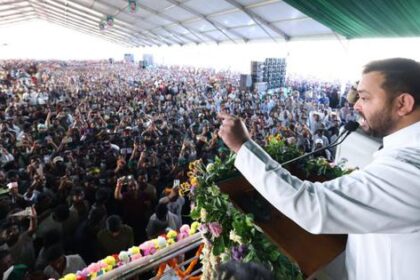Understanding the challenges faced by aspirants in India’s elite civil services and the legacy of Ambedkar.
Joining the elite services in India represents an aspirational goal that is often perceived as transcending caste barriers. However, the reality remains complex and layered. In the neoliberal landscape, government jobs have become increasingly coveted, yet the path to securing these positions is fraught with challenges. Many individuals pursuing a career in civil services have faced skepticism from their surroundings, but they have pressed on, dedicating countless hours to their preparation.
Those who manage to navigate the rigorous selection process often find themselves in positions of great responsibility. The legacy of B.R. Ambedkar, who championed the rights of marginalized communities and advocated for special provisions for reserved candidates, looms large over this journey. His vision and determination paved the way for many who now aspire to serve in government roles. It is crucial to acknowledge this historical context, as it reminds aspirants that they stand on the shoulders of giants who fought against the oppressive caste system.
Once past the examination stage, candidates face the daunting task of interviews, where their futures can hinge on mere marks. In this vulnerable moment, many candidates may feel the weight of systemic biases. Experiences of being judged not solely on merit but also through the lens of caste and class can leave deep scars. The struggle to find mentorship or support from peers who understand these nuances can be isolating, particularly for those who belong to marginalized communities.
In such an environment, it becomes essential to forge connections with others who share similar backgrounds and experiences. Establishing a network of support can provide strength and reassurance in a system that often feels indifferent or hostile. Building relationships with colleagues who are willing to confront their own biases can lead to genuine solidarity. It is important for those in positions of privilege to engage actively in dismantling the caste-based hierarchies that persist within bureaucratic structures.
For many, the journey does not end with securing a position in the civil service. It extends to actively participating in the upliftment of marginalized communities. Engaging with local groups and being a voice for the underprivileged can help bridge the gap between state resources and those in need. This commitment to service reflects the foundational principles of the Constitution, which seeks to uphold equality and justice for all citizens.
Aspirants are encouraged to maintain their sense of self and to resist the pressures to conform to the expectations of dominant caste colleagues. Embracing one’s identity and heritage can serve as a source of pride and motivation. The responsibility to uphold the ideals of justice and equity is paramount, and each individual has the potential to contribute to the ongoing struggle for a more equitable society.
Ultimately, the challenge for Ambedkarites in elite services is to balance their personal ambitions with a commitment to the collective good. They must strive to create an environment where dignity and respect are afforded to all, regardless of caste or background. This commitment is not only a tribute to those who fought for these opportunities but also a pledge to future generations who aspire to break free from the shackles of caste discrimination.








